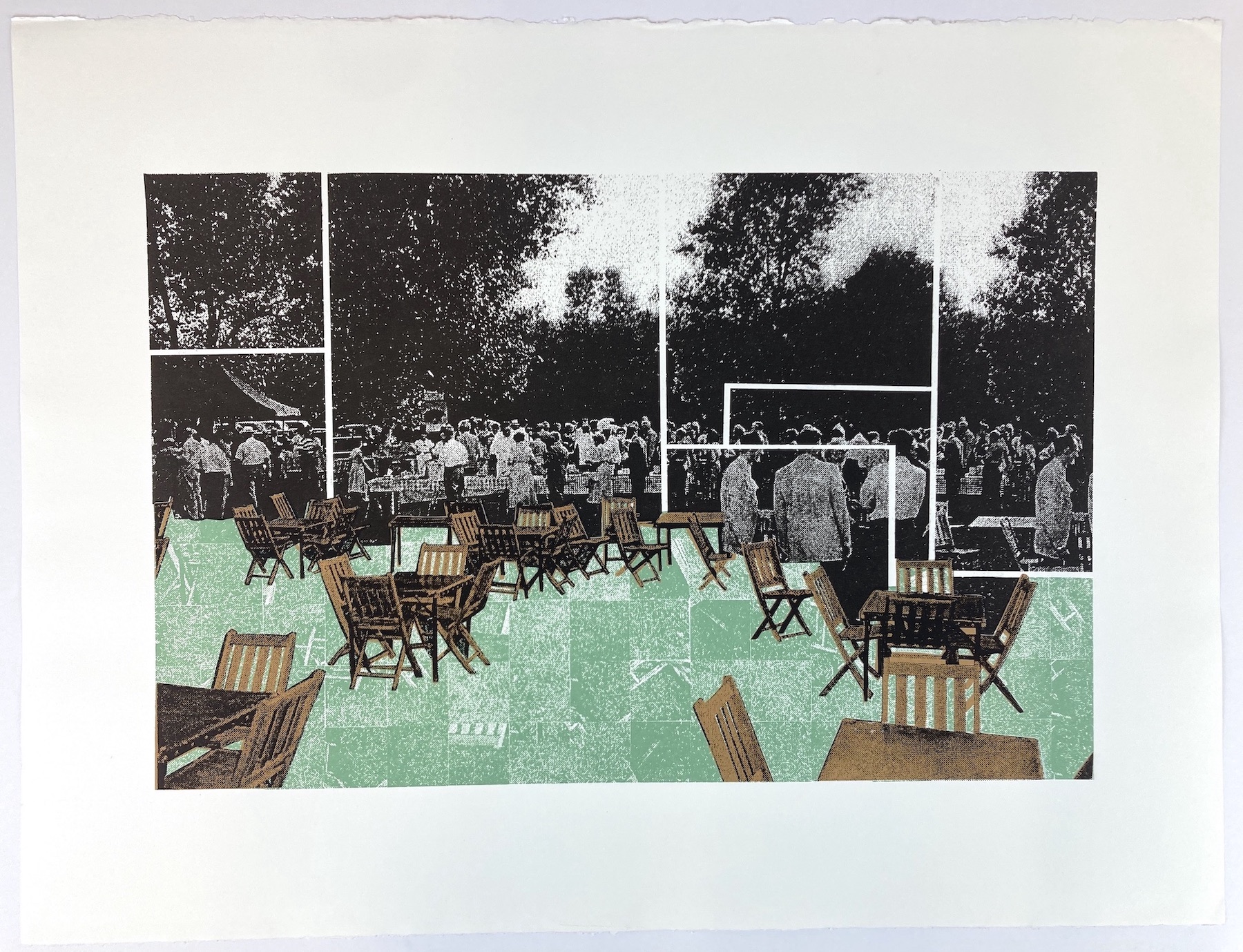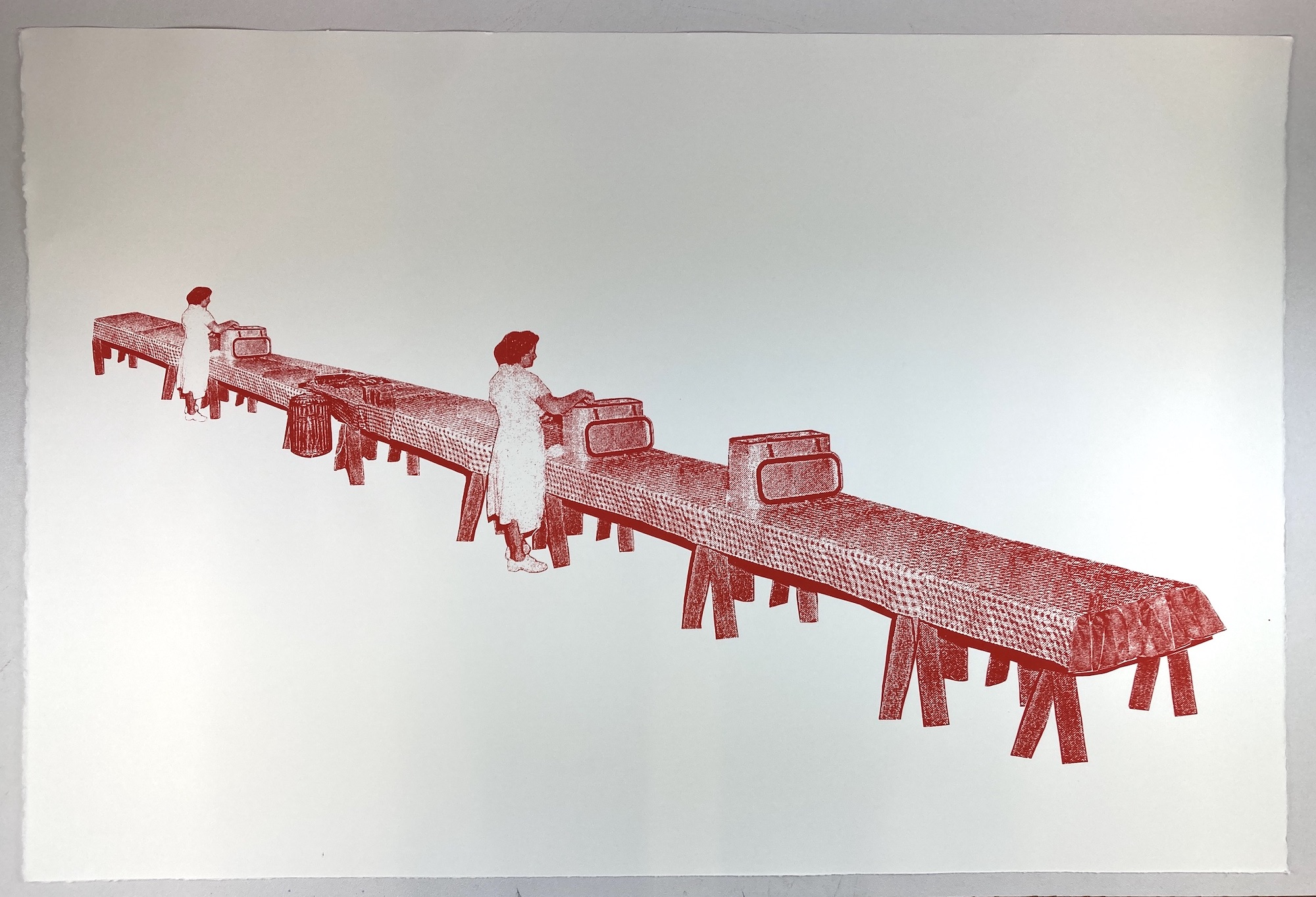
Quarter Century Company Picnic, Screenprint, 2023

Footage Record, Screenprint, 2023

The Beginnings of the Rod and Gun Club, Screenprint, 2023
The Whole Family, Screenprint, 2023
Family Wage, Pathological Matriarchy, Substitute Father, Intaglio, 2023
Nicknames: Huntington High Class of 1924 and Owens-Illinois Glass Factory Flow Line, Corrugated, Mold Shop, Packing, Screenprint, 2019
Installation View: Prologue Projects- Annex Gallery at Taylor Books, Charleston, West Virginia, July 2023



FOOTAGE RECORD
Text from Footage Record, an exhibition at Prologue Projects: Annex Gallery at Taylor Books, Charleston, WV, in July 2023:
Most of these prints were created with archival material from the Owens-Illinois glass factory that was active in Huntington between 1914 and 1993. The Owens-Illinois company operated under a model we could call “industrial paternalism,” where a company provides for the welfare of its employees. I wanted to explore this model and think about how it relates to the family, gender, and even ideas about what it means to be American. (Do private companies provide for peoples’ welfare, or do labor unions, or the government?)
Owens-Illinois took care of their employees’ welfare not only with wages and benefits, but also by forming clubs and athletic teams, and organizing fishing and hunting trips, movie nights, picnics, and intra-plant competitions between units. Oftentimes, many generations from the same family all worked for the company, and much of their lives revolved around it, with work and play frequently overlapping. This acted to offset the monotony of the various jobs within the plant and to “keep the people happy without a union.”*
I accessed archival material from the KYWOVA Genealogy and Historical Society in Huntington, and through organizing images, and enlarging, shrinking, cutting, taping, and repeating, I worked to shift emphasis and create focal points. Somehow, a verrry long table seemed like a summary of the company model- both with the continual emphasis on maximizing production and profit, as well as how that industrial motivation was frequently merged with the many social opportunities. I wanted my interventions to remain un-hidden, to make transparent that any artistic work with archival material is a collaboration between the material itself, its creator, the people who collect the material, and the artist.
The nicknames prints came out of observing the large number of nicknames present in all of my archival research of Huntington in the early part of the 20th century, and from wondering how that might be related to boosterism- of trying to prove that Huntington was the absolute best place to move to and invest capital in, that it was a town of optimists, and that it was a “hinge” not a “corner”- all statements from Huntington Chamber of Commerce brochures from the 1920s.
With Bread Winning Masculinity Collapse and the associated text prints, I hope to draw attention to how decisions regarding the economy (and the business structures that happen within it) are related to ideas about the family and gender roles. The family wage--the template where a nuclear family is provided for by the male wage-earner-- is threatened by the presence of female workers.**
*From Opal Mann’s oral history about working in the plant, conducted by Marshall’s Morrow Library in 1994.
**Owens-Illinois was the subject of a lawsuit enforcing the Civil Rights Act of 1964, charging that their policy of allowing women to work only in one lower-paying division was illegal.